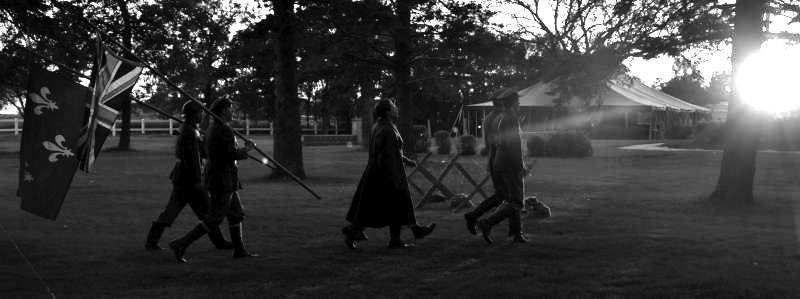Amidst the rustic ruins of a Trappist Monastery, a small group of Winnipeg actors put on a barebones production of Romeo and Juliet in the summer of 1993.
That group of ragtag actors became known as Shakespeare in the Ruins. Twenty years later, the theatre company has survived wind, rain, impossibly hot Winnipeg summers, and almost losing the ruins themselves to become a mainstay in the local arts scene.
Michelle Boulet, one of the artistic co-chairs for Shakespeare in the Ruins, has been there from the very beginning.
The original monastery was established along the La Salle River in 1892. The monks left their home in 1978 when the area became too industrialized for their comfort. Fire gutted the vacated church and residential wing five years later. What was left was a rustic setting full of brick archways, walls, and foundations.
To the ragtag group of actors, it seemed like the perfect setting for Shakespeare, says Boulet.
“There was only really three locations, and there was not really anywhere for them to sit, so they kind of just stood against the walls. Whereas by year two, we had realized we could go outside the ruins, we could go out into the field, we could go down by the river bank, we could come back in,” says Boulet.
Shakespeare in the Ruins uses promenade-style audience movement, where audience members are lead from scene to scene each held in different locations throughout the ruins. This created quite a bit of confusion during the company’s first production.
“The first year was a little bit ‘bunny in the headlights.’ We were trying something completely new and we weren’t quite sure how it was going to work. But it was fun.”
The company was forced out of the ruins in 2002 after the structure of the buildings began to deteriorate. For ten years, the company moved through several locations throughout Winnipeg, performing in parks and even on top of a parking garage.
After the province of Manitoba invested in a $1 million renovation of the site, the company returned last year for its first performance in the ruins in nearly a decade.
Kevin Klassen has been with the company since 2002. What he finds sets Shakespeare in the Ruins apart from the rest of the local theatre community is the lack of barriers between the actors and their audience.
“There’s no lip of the stage, there’s no seating area, and this is where the stage starts. You’re sharing the exact same space; in between the actors are directing the audience where to go and speaking directly to them,” says Klassen.
A performance that highlighted this aspect of the company’s performances for Klassen was a production of Romeo and Juliet at a small school in Gladstone, Man. Klassen was Juliet during this performance, and a group of five-year-olds were so entranced by seeing Juliet and Romeo together that they started chanting.
“I was lying in the tomb near the end of the show. And Romeo came in to the tomb and there were like five or six kindergarten kids sitting in the front row. And as Romeo started walking toward Juliet’s dead body, they started chanting under their breath ‘kiss her, kiss her, kiss her,’” Klassen said.
“Just the idea that these five-year-old kids were following along and knew exactly what was happening, and were so engaged that they were trying to influence the outcome of the play – that’s exactly what Shakespeare in the Ruins is here to do.”
Because performances are all held outdoors, the weather becomes an element of each performance as well, he said.
“Because we’re outdoors, we’re sharing the same atmosphere, the same weather, and it’s not controlled. So it really creates an intimate contact between the actor and the audience that you get nowhere else, at least in Winnipeg.”
“And because the elements are uncontrolled, birds will fly in from nowhere, squirrels will appear, dogs. So it reminds the audience that it is a live experience. That in every performance, every moment, it is truly unique.”
Considering many small theatre companies don’t survive past their 10th birthday, the 20th anniversary of Shakespeare in the Ruins is a unique feat, says Boulet.
“In the whole scheme of theatre companies, we’re a relatively small operation. So it’s a big deal that we’re still around.”
Shakespeare in the Ruins’ 20th anniversary celebration will take place at the Prairie Theatre Exchange Mar. 15.


